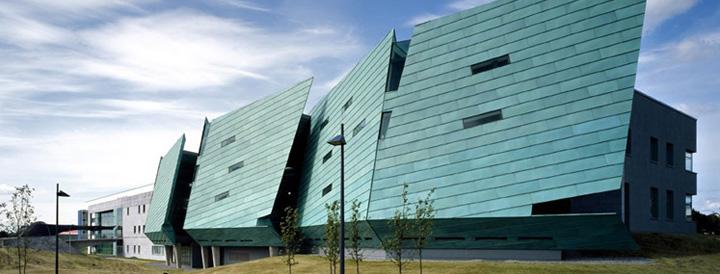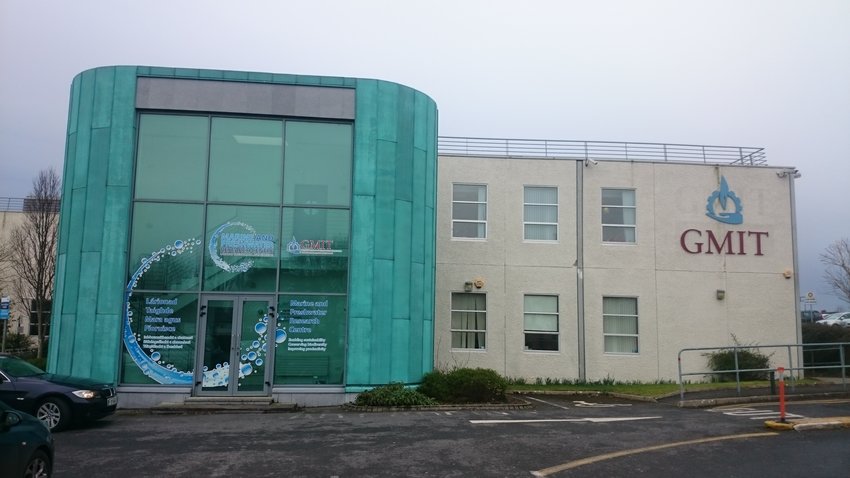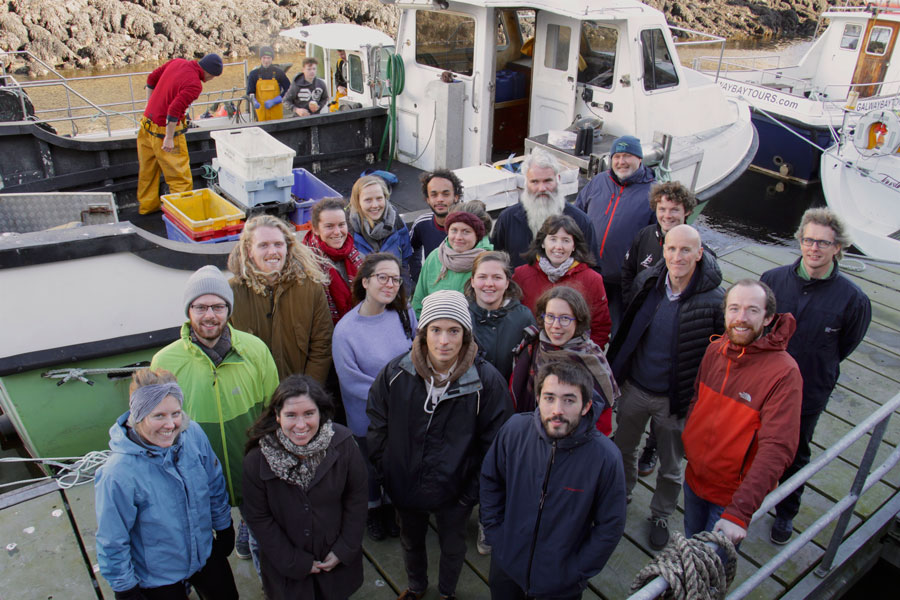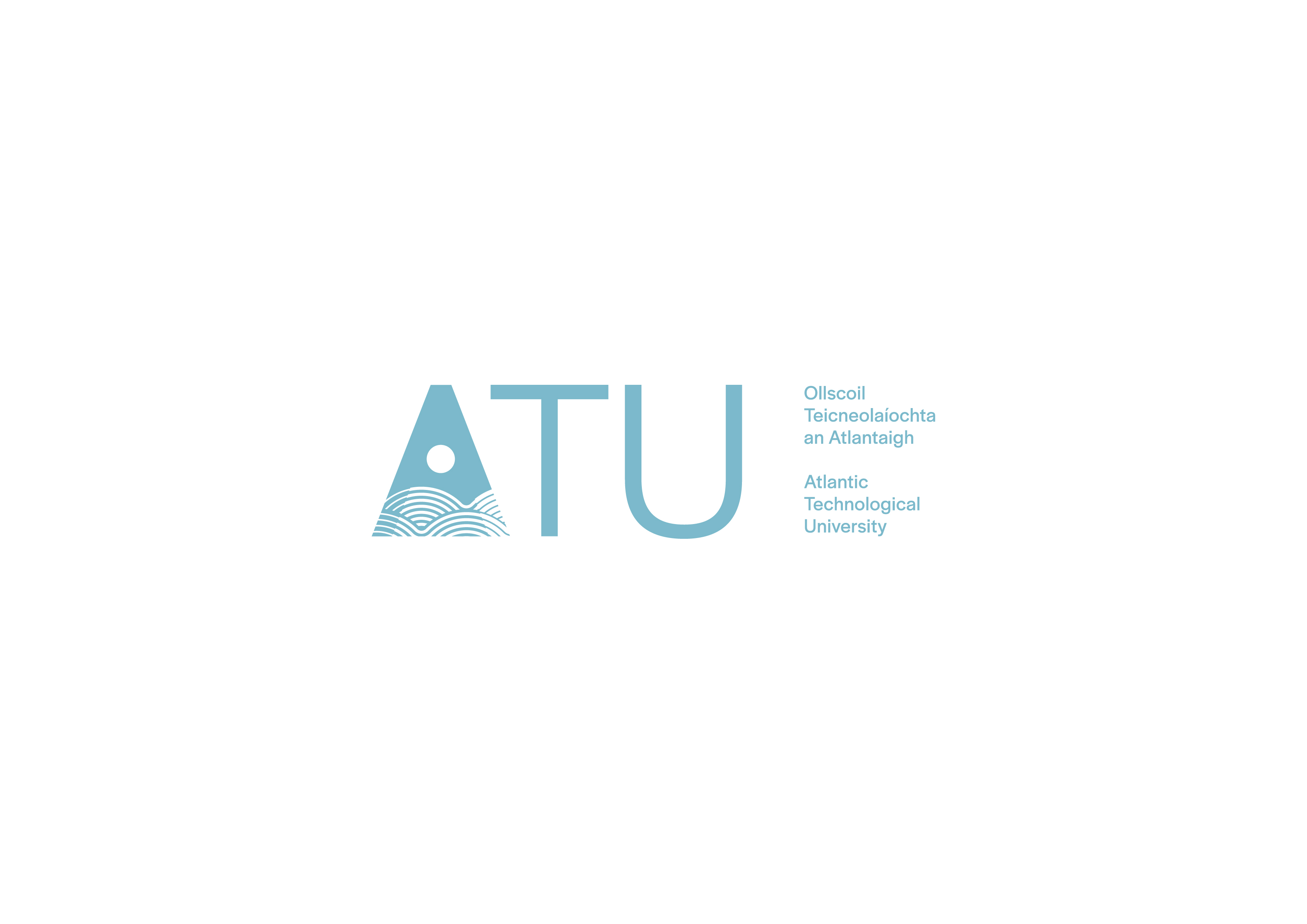Atlantic Technological University (previously GMIT)
General Information
ATU develops life-long learning opportunities through teaching and research, by supporting regional development consistent with national higher education policy.
The university conducts applied research to inform the sustainable management of aquatic living resources in the following areas:
- Sustainable management of fisheries & their ecosystems:
Early life history and stock identification, Biostatistical and Quantitative Ecology, Biostatistical advice and analyses from local to national and international investigations. MFRC integrates both biological/ecological and statistical expertise in cross-disciplinary applications.
- Conservation of marine biodiversity:
Marine mammal research in marine bio-acoustics; including the development and testing of technology for bioacoustics and monitoring ocean noise
Population assessment for small cetaceans, and the distribution and feeding ecology of baleen whales and basking sharks.
- Environmental toxicology:
Development of technologies for the detection and measurement of the effects of novel pollutants. Development and testing of novel bio-markers.
- Innovative technologies to optimise seafood production:
Characterisation of physiological responses in crustaceans.
Elucidation of inflammatory bio-markers in seafood species.
Development of immuno-stimulants for the improvement of fish health in aquaculture.
Housing
Detailed information on coming as a visiting student to ATU is provided on ATU's website. Prospective students can also read the prospectus for new students, updated each year, providing additional information on ATU and Galway City. Details and advice on obtaining accommodation can be found on the Student Union pages. There are several student villages within 10 to 15 minutes’ walk of the campus in Galway.
Useful Links:
Living Costs:
GMIT estimates that the living costs for international students is approximately €775 per month, a breakdown of this cost can be found at ATU's website.
Services
The International Office and the programme team responsible for delivering IMBRSea will help prepare students coming to GMIT and will provide an orientation week in ATU. Students will also be provided with an orientation pack on arrival at GMIT and will be met by the International Office and the GMIT Programme Chair, Dr. Ian O’Connor. In addition, the Programme Chair and the International Office will assist with student registration, provision of access to ICT facilities and the Library facilities. The is an International Student Society that welcomes students and organises social events and trips for international students.
The ATU Students Union has a range of staff and services that are available to incoming international students and they will meet with the students and provide them with information on the services and supports on offer. In addition the Students Union acts as the central hub for all student sports clubs and societies.
ATU's Student Services provides all students with access to medical, counselling, career development and chaplaincy services. It also facilitates support to students with significant financial hardship and students with disabilities. You can also check a short video describing information on ATU student services.
Useful Links:
ATU Student Services
Language Opportunities:
GMIT offers language training in French, Spanish and German. These are included in the cost of tuition at GMIT. ATU also offers language training in Irish, but for intermediate users only. Students enrolled in IMBRSea at ATU will have extensive opportunities to engage with staff and students that use English either as a first or second language. The nature of much of the programmes is such that there are considerable amounts of group discussion, interactive role play and presentations; where students use English as a second language this provides them with the opportunity to improve their fluency and confidence.
Visa Information
Most non EU students coming to GMIT must obtain a study visa before travelling to Ireland.
Countries Requiring Visas
A full listing of the countries requiring visas can be obtained from the Irish Department of Justice or by contacting the GMIT International Office.
Visa Requirements
Full details of the visa requirements can be found on the Irish Naturalisation and Immigration Service website. There is a special section devoted to Student Visa Guidelines which explains the documentation which must be provided.
Allow a minimum of 8 weeks for a visa application to be processed. Applications can be tracked on the INIS website by entering the visa reference number given.
Re-entry Visa
If a non-EU student wishes to return home or travel outside Ireland during their studies, a re-entry visa is required. This can only be obtained from the GNIB office in Burgh Quay in central Dublin. The cost is 150 Euro.
A re-entry Visa letter for the GNIB can be obtained from the International Office.
Exams
All of the IMBRSea modules at ATU will be assessed using a continuous assessment model. These continuous assessments may take the form of both theoretical and practical work, presentations, fieldwork, report writing and all are designed to assess the attainment of module learning outcomes.
Students will be issued with an assessment schedule at the start of their semester in ATU and this will detail the learning outcomes for the modules and how and when they will be assessed. Those that do not pass the continuous assessment (pass mark 40%) can subsequently complete an examination to demonstrate attainment of the learning outcomes.
Students can appeal the result obtained for any module, this must be done within one week of announcement of the results. Appeals are submitted to the relevant head of Dept, in this instance, Dr Lisa Ryan, Head of Dept of Natural Sciences. Appeals are then heard by the examinations appeal board.




